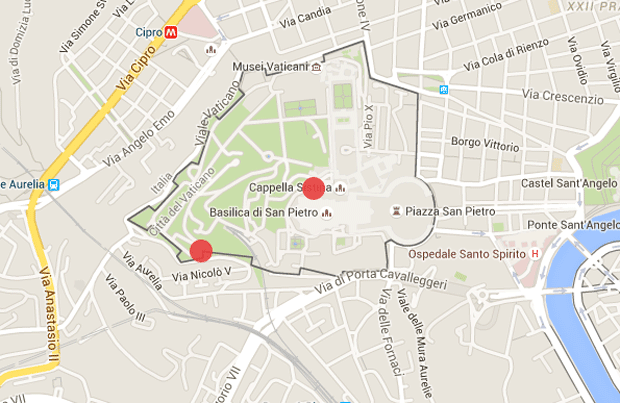Two Italian journalists are being prosecuted by The Vatican for revealing confidential information and could face up to eight years in prison.
Emiliano Fittipaldi and Gianluigi Nuzzi are being tried in the so-called “Vatileaks II” case for publishing leaked documents in their books detailing financial misdeeds involving The Holy See. Fittipaldi is the author of Avarice and Nuzzi’s is entitled Merchants in the Temple.
The criminal trial by the Vatican justice against the reporters is a serious one. The journalists are accused of violating “Crimes against the Fatherland” in the Vatican penal code, specifically a 2013 amendment that added section 116, which says “whoever procures illegally or reveals information or documents whose disclosure is forbidden, shall be punished with imprisonment from six months to two years or with a fine from thousand to five thousand euro”. But “if the conduct has related to information or documents concerning the fundamental interests or diplomatic relations of the Holy See and the State, punishment of imprisonment is implemented from four to eight years”.
Fittipaldi and Nuzzi are not the only people standing trial in the case. The alleged sources of the internal Vatican documents — Lucio Vallejo Balda, secretary of Cosea, the commission that conducted the survey on the finances of the Vatican, and Francesca Immacolata Chaouqui, a member the commission — are also in the dock. A fifth person, Nicola Maio, a former contributor to Cosea, is also being prosecuted. Balda, Chaouqui and Maio are also accused of criminal association.
So far, there have been three hearings as part of the trial. The first on 24 November ended with a decision by the court to reject requests for deferral submitted by the defendants, who said they didn’t have enough times to organise their defence, having received court documents only the day before. The second hearing on 30 November lasted only 13 minutes, during which the court deferred the trial until 7 December. On that day, the court admitted all the witnesses requested by the defence.
“I am a journalist, and when a reporter has some news and verifies it, he must publish it”, Fittipaldi said of the Vatican’s decision to prosecute. After the second hearing, Nuzzi said: “It is a Kafkian process, in which the elements of surrealism occasionally fall on the stage of the case. I do not share the codes of this process, we are talking about a process to press freedom.”
Press freedom organisations have been quick to express solidarity with the journalists and called on the Vatican to end the proceedings. The FNSI (National Federation of Press in Italy) called the disputed allegations “paradoxical”. Dunja Mijatović, the OSCE Representative on Freedom of the Media, asked the Vatican, which is a member of the OSCE, to withdraw the criminal charges set against the reporters. The CPJ (Committee to Protect Journalists) called on Vatican to drop the charges against Nuzzi and Fittipaldi. EFJ (European Federation of Journalists) said: “Journalists must be free to investigate and report about the use of public money. The protection of their sources is also part of the ethical code of journalists.”
The next hearing of the case has yet to be scheduled.
Mapping Media Freedom
|





